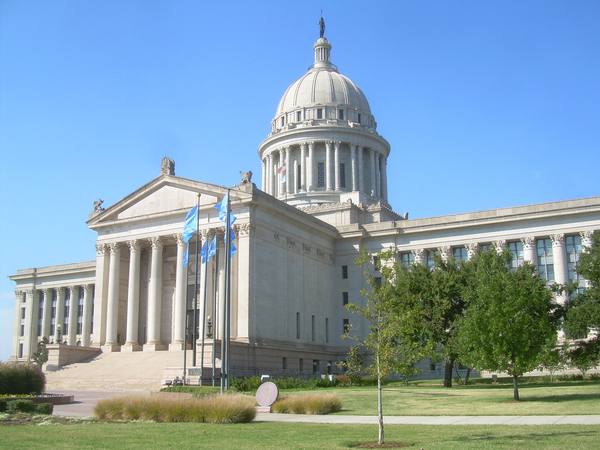
- Details
- By Darren Thompson
“Thank you to the members of the Oklahoma Legislature who voted to override Governor Stitt on bills important to the Cherokee Nation and tribal citizens across the state,” Principal Chief of the Cherokee Nation of Oklahoma Chuck Hoskin, Jr. said in a statement to Native News Online. “Nearly every legislator voted to overturn the vetoes.”
The bill becomes law on July 1 and allows any student at a public school, including colleges, universities and technology centers, to wear tribal regalia such as traditional garments, jewelry, or other items of cultural significance at graduation ceremonies. However, the bill specifically prohibits the adornment of items such as a bow and arrow, tomahawk, or “war hammer.”
The veto override comes amid a lawsuit filed on the Native American Rights Fund (NARF) on behalf of a Native American Oklahoma high school graduate for allegedly being stripped of her regalia at her 2022 graduation ceremony.
Earlier this month, Native News Online reported that Gov. Stitt, a Cherokee Nation of Oklahoma citizen, vetoed the tribal regalia bill. In his veto message on May 1, Stitt wrote that if the bill became law, it would open up additional efforts by other groups to push for their agendas.
“Should this bill become law, the proverbial Pandora’s box will be opened for other groups to go over the heads of local superintendents and demand special favor to wear whatever they please at a formal ceremony,” Stitt wrote.
According to the Oklahoma State Department of Education (OSDE), in 2020, there were approximately 156,000 American Indian students who were enrolled in at least one of the 39 Tribal Nations of Oklahoma.
“The majority of Oklahomans believe in respecting the rights of Native Americans and working together with the sovereign tribes who share this land,” Hoskin said.
More Stories Like This
Native News Weekly (August 25, 2024): D.C. BriefsUS Presidents in Their Own Words Concerning American Indians
Native News Weekly (January 18, 2026): D.C. Briefs
Federal Judge Orders ICE to Halt Use of Pepper Spray, Arrests of Peaceful Protesters in Twin Cities
Tunica-Biloxi Cultural Leader John D. Barbry Walks On
Help us defend tribal sovereignty.
At Native News Online, our mission is rooted in telling the stories that strengthen sovereignty and uplift Indigenous voices — not just at year’s end, but every single day.
Because of your generosity last year, we were able to keep our reporters on the ground in tribal communities, at national gatherings and in the halls of Congress — covering the issues that matter most to Indian Country: sovereignty, culture, education, health and economic opportunity.
That support sustained us through a tough year in 2025. Now, as we look to the year ahead, we need your help right now to ensure warrior journalism remains strong — reporting that defends tribal sovereignty, amplifies Native truth, and holds power accountable.
 The stakes couldn't be higher. Your support keeps Native voices heard, Native stories told and Native sovereignty defended.
The stakes couldn't be higher. Your support keeps Native voices heard, Native stories told and Native sovereignty defended.
Stand with Warrior Journalism today.
Levi Rickert (Potawatomi), Editor & Publisher

